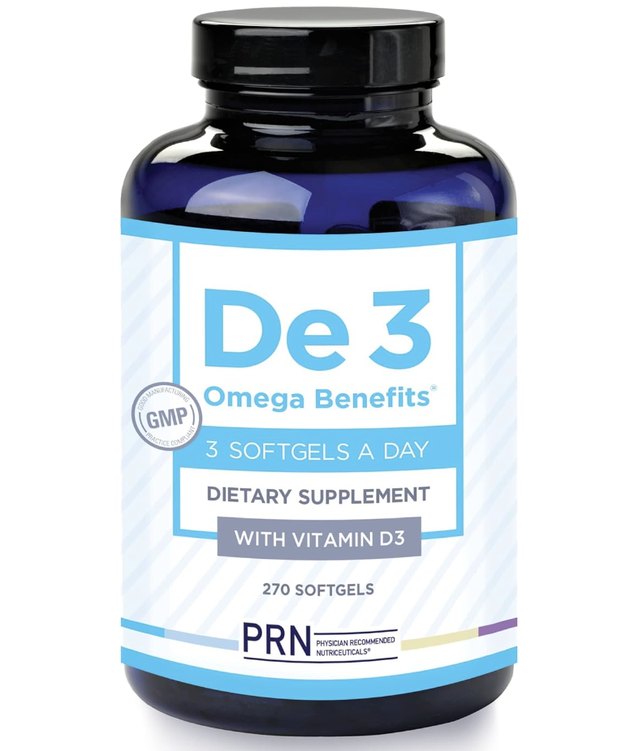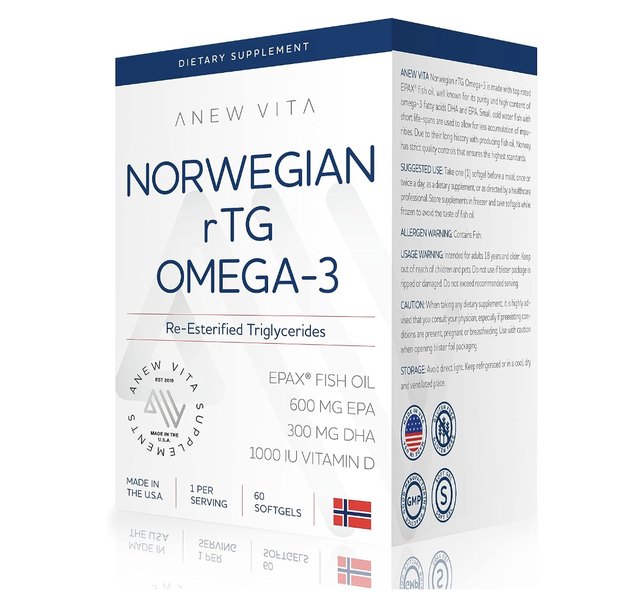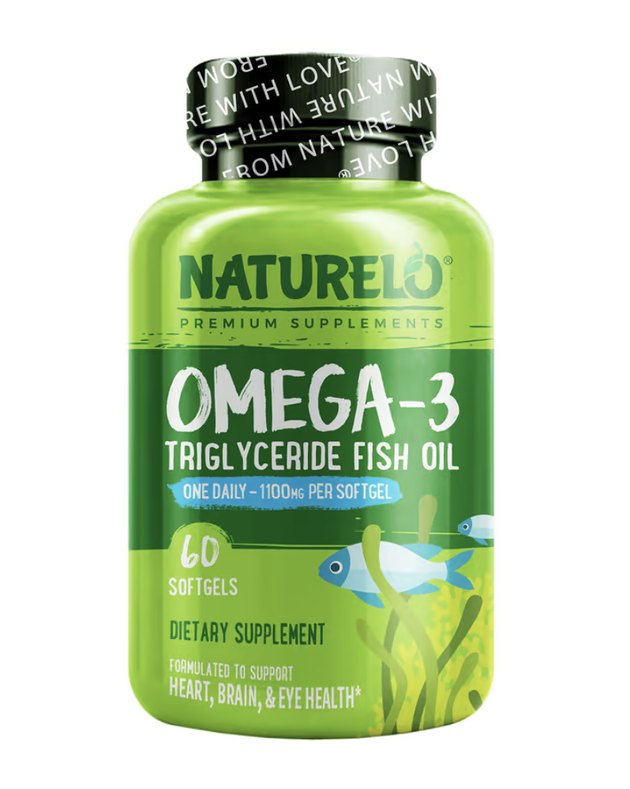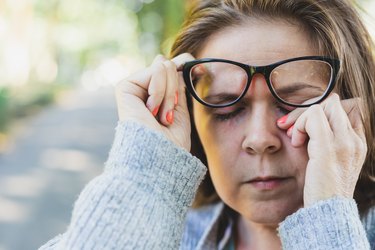
That burning, itchy sensation in your eyes is not all in your head. It could be dry eye — and it can be caused by many different things.
Dry eye is actually pretty common, affecting millions of Americans each year. It happens when the tear-producing glands above your eyes don't make enough tears to keep your eyes lubricated or when your tears don't work correctly, per the National Eye Institute.
Video of the Day
Video of the Day
If you're all too familiar with the frustrating symptoms of this condition, it might be worth taking a glance (pun intended) at your diet, as certain foods might be able to help relieve dry eye. In fact, there's one specific nutrient that's linked to keeping your eyes lubricated — omega-3 fatty acids.
How Omega-3s Might Help With Dry Eye
Omega-3s are a type of polyunsaturated fat linked to many health benefits, including fighting inflammation and supporting brain health. Some older research also shows that this superstar nutrient may help prevent dry eye and keep your peepers in tip-top shape, too.
There's not a lot of current research showing that omega-3 helps dry eye. But some older October 2005 research in the American Journal of Clinical Nutrition worth mentioning found that out of more than 32,000 people observed, those who ate the most omega-3s from fish had a markedly lower risk of dry eye than people who ate little to no omega-3-rich fish.
There is also not much current research about omega-3s for tear production, except for an older September 2014 study in Medical Science Monitor, which found that omega-3 fats help with tear secretion and tear film stability, two factors that play a significant role in how well your eyes stay lubricated.
And circling back to omega-3's inflammation fighting power: "Omega-3s seem to reduce inflammation of the eyelids or surface of the eye, which is why [the nutrient is] believed to help alleviate symptoms of dry eye disease," says Luke Rebenitsch, MD, a board-certified ophthalmologist and clinical spokesperson for the American Academy of Ophthalmology (AAO).
Omega-3s also seem to improve the function of the meibomian glands, which produce oils and keep your tears from drying out too quickly, according to the AAO.
How to Get Omega-3s in Your Diet
If your goal is to relieve dry eye, most of the research is in favor of eating your omega-3s rather than getting them from a supplement.
While the research on fish oil pills for dry eye is mixed, a May 2018 study in The New England Journal of Medicine found that giving people a dose of 3,000 milligrams of omega-3s from fish oil pills didn't improve people's dry eye symptoms.
That's why Dr. Rebenitsch recommends focusing on getting omega-3s from your diet.
"The best way to get omega-3 fats is naturally, by eating foods like salmon, sardines, herring, tuna and cod liver," Dr. Rebenitsch says.
You can also get omega-3s from some plant sources, including flaxseed oil, walnuts, chia seeds and edamame.
Here are a few tasty ways to incorporate omega-3-rich foods into your diet:
- Air-fry a fillet of salmon and serve alongside your favorite veggies.
- Incorporate walnut oil or flaxseed oil into a homemade salad dressing.
- Sprinkle chia seeds into oatmeal, smoothies or yogurt.
- Craft a protein-rich sandwich with sprouted bread, sardines, mustard and sauerkraut.
- Snack on pickled herring and flaxseed crackers.
- Toss walnuts into a homemade trail mix along with dried cranberries and dark chocolate chips.
- Make an omega-3-rich tuna salad and scoop it over salad or spread it on toast.
- Snack on boiled edamame or toss it into a salad for extra protein and omega-3s.
The Best Omega-3 Supplements for Dry Eyes
If you're not a fan of fish and would still like to try an omega-3 supplement, you'll want to first ask your doctor if fish oil pills are right for you, Dr. Rebenitsch says.
"A doctor can help you select the best quality supplement based on your eye and overall health from the many options available in stores, " he adds.
As for the best type of fish oil, "There is some research that suggests if you're going to take pills, a re-esterified formulation may be more easily absorbed," Dr. Rebenitsch says.
The following supplements are made with re-esterified triglyceride (rTg) and are either third-party tested for quality and safety or produced in a Good Manufacturing Practices (GMP) facility:
When to See a Doctor About Dry Eye
If your dry eye symptoms persist or worsen, it's time to call your doctor. Symptoms to watch out for include redness, irritation, pain and vision changes or blurry vision.
Your doctor can help nail down the root cause of your dry eye, or refer you to a specialist who can.
Is this an emergency? If you are experiencing serious medical symptoms, please see the National Library of Medicine’s list of signs you need emergency medical attention or call 911.





